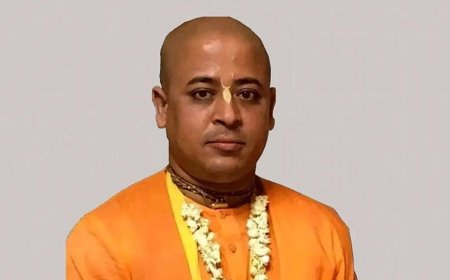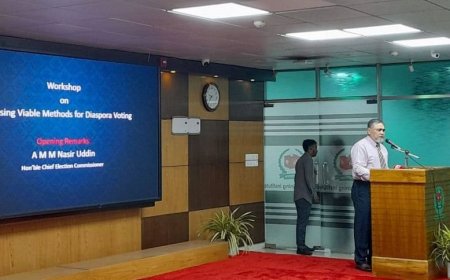Political divisions deepen amid growing election uncertainty
The BNP asserts that lasting reforms are achievable only through a government chosen by the people.

The political landscape in Bangladesh has grown increasingly polarized ahead of the next parliamentary election, with notable differences emerging among major political forces such as the Bangladesh Nationalist Party (BNP), Bangladesh Jamaat-e-Islami (BJI), and the Anti-Discrimination Student Movement.
In contrast, the ousted fascist Awami League, along with its allies in the 14-Party Alliance and the Jatiya Party led by GM Quader, has seen its relevance in national politics dwindle. This decline stems from widespread public discontent over their misdeeds and their connections to the authoritarian regime that was toppled during the mass uprising in July.
The anti-fascism unity movement, initiated by students, played a pivotal role in the uprising that led to the overthrow of Sheikh Hasina’s authoritarian regime on August 5. Sparked by the Anti-Discrimination Student Movement’s protest against inequities in government employment, the movement ultimately forced the regime's downfall.
Following this political shift, an interim government led by Prof. Muhammad Yunus established reform commissions to promote good governance and accountability. Prior to this, the BNP had proposed a 31-point reform agenda in 2023, while Jamaat submitted a 10-point proposal during dialogue with Chief Adviser Prof. Yunus. The Jatiya Nagorik Committee and the Anti-Discrimination Student Movement have also demanded comprehensive state reforms and the prosecution of leaders implicated in crimes during the uprising.
Election Timing Sparks Divisions
The issue of election timing has become contentious. The BNP and its allies advocate for early elections to restore democracy, a cause they have championed for the past 17 years. BNP Vice Chairman Abdul Awal Mintoo emphasized the urgency, stating, “Immediate elections will benefit the country and its economy. Those opposing early elections lack faith in democracy.”
Meanwhile, Jamaat, the Jatiya Nagorik Committee, and the Anti-Discrimination Student Movement argue that elections should be delayed until necessary reforms are completed to ensure fairness and transparency.
Jamaat Publicity Secretary Motiur Rahman Akand warned, “Without essential reforms, elections risk being neither free, fair, nor neutral.”
Broader Disputes
The divisions extend beyond election timing to key issues such as the July Proclamation, the 1972 Constitution, and the banning of the Awami League. While the BNP opposes scrapping the 1972 Constitution and banning the Awami League, other groups, such as the Jatiya Nagorik Committee and the Anti-Discrimination Student Movement, support these measures.
BNP Secretary General Mirza Fakhrul Islam Alamgir acknowledged differences but downplayed their significance, noting that both the BNP and Jamaat ultimately support holding elections.
Jamaat Nayeeb-e-Ameer Syed Abdullah Muhammad Taher reiterated this sentiment, affirming the strong relationship between the two parties.
Calls for Unity
Chief Adviser Prof. Yunus has emphasized the importance of unity among political parties, particularly regarding the July Proclamation. He stated during an all-party meeting, “A unified declaration will benefit the country.”
BNP Standing Committee member Salahuddin Ahmed expressed the party’s concerns about the proclamation's implications, while Jamaat Secretary General Mia Golam Parwar cautioned against actions that could create instability.
Decline of the Awami League
Political experts, including Prof. Sabbir Ahmed of Dhaka University, have noted the Awami League's increasing irrelevance. Prof. Ahmed suggested that the party could regain significance by distancing itself from Sheikh Mujibur Rahman’s family.
Economist and political analyst Prof. Mahbub Ullah echoed similar concerns, observing that while the party has weakened, its established social structures could present challenges in the future.
Since the 5 August uprising, many Awami League leaders have fled the country, and their parties have largely ceased public activities. The interim government has excluded the Awami League, the Jatiya Party, and the 14-Party Alliance from discussions with anti-fascist political groups, underscoring their diminished influence.
What's Your Reaction?





















































































